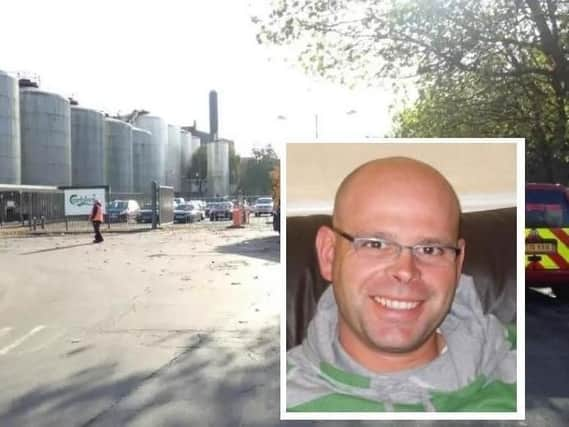Carlsberg manager admits failures led to fatal gas leak in Northampton


David Chandler, 45, from Shropshire, was killed almost instantly in the incident in 2016 when a pipe of ammonia leaked “right at his face”.
At day five of his inquest today (June 26) the jury heard how the leak occurred because a closed valve that should have “isolated” the ammonia pipe failed.
Advertisement
Hide AdAdvertisement
Hide AdBut Ian Swann, an engineering manager for Carlsberg at the time of the incident, admitted that relying on that single valve “wasn’t fit for purpose” and a second valve could “easily” have been closed too before bleeding the pipe empty.
Carlsberg had contracted refrigeration group Crowley Carbon to check the isolation job, which had been done two years before in 2014.
Mr Karl Hurst, who represents David Chandler’s family, asked Mr Swann:
“Do you agree that the tragedy that befell Mr Chandler happened because the ammonia has isolation failed because it wasn’t fit for purpose?”
“Yes,” said Mr Swann.
Advertisement
Hide AdAdvertisement
Hide AdMr Hurst said: “Do you accept that Carlsberg should have assessed the standard of isolation themselves before letting any contractors anywhere near?”
“Yes,” said Mr Swann. “But we were relying on the refrigeration expertise [of Crowley Carbon].”
Mr Hurst said: “And do you agree that, because nobody at Carlsberg did, that Mr Chandler died?
“Yes,” said Mr Swann.
Mr Chandler was working as a contractor for Speedrite NE - who were tasked with “lifting and shifting” a piece of machinery known as a compressor - when the leak occurred.
The inquest has heard how none of his team were equipped with masks because they believed “there was no significant risk of ammonia escaping.”
The inquest continues.